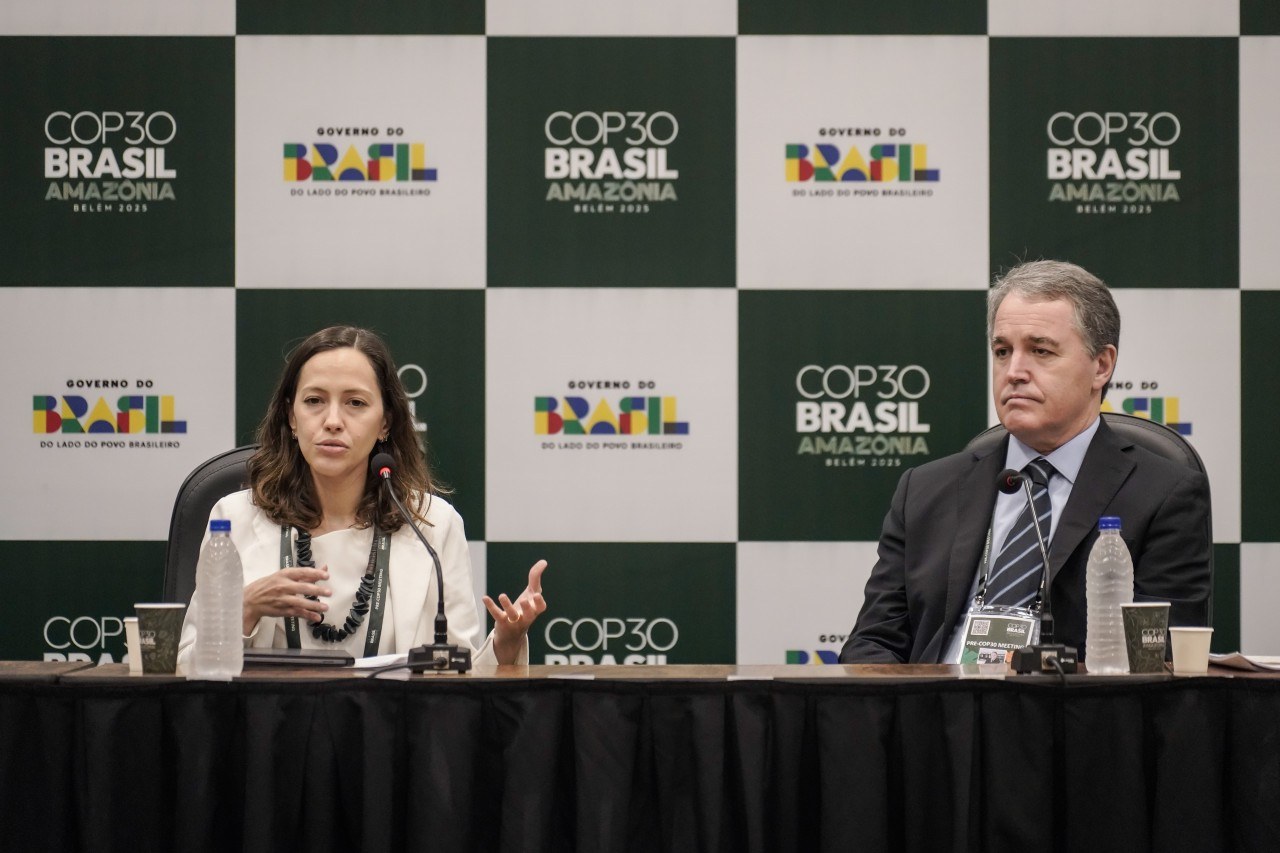COP30 Presidency and Dan Ioschpe Highlight Progress on the Action Agenda at the Pre-COP
According to Brazil’s High-Level Climate Champion for COP30, the number of actions under the initiative is expected to triple after the Conference. The volume of initiatives reporting tangible outcomes has already quadrupled during this cycle of the Brazilian Presidency.

By Laura Marques/COP30
The COP30 Presidency, together with the COP30 High-Level Climate Champion, Dan Ioschpe, mapped a total of 722 initiatives launched within the framework of the COPs since 2014, focused on climate change mitigation and adaptation. Given the engagement already demonstrated, the expert stated during the Pre-COP on Tuesday, October 14, that the number is expected to triple after the conference in Belém (PA).
The mapped initiatives form part of the Action Agendas developed over the past decade and encompass efforts led by public and private entities, civil society, academia, and a diverse array of stakeholders. These actions are instrumental in accelerating the implementation of measures necessary to fulfill the Paris Agreement and in bridging the global climate agenda with the lived realities of communities worldwide.
Of the total initiatives identified, 423 have thus far responded affirmatively to the invitation extended by the Brazilian Presidency to actively engage in the COP30 Action Agenda. To this end, dedicated working groups have been established for each of the 30 key objectives of the current cycle, with the aim of reinforcing implementation efforts
As part of this process, the initiatives are expected to fulfill three core responsibilities: ensuring transparency through the reporting of qualitative outcomes; and, for the first time, presenting indicators of effectiveness. Since the 2014 COP20 in Peru, such reporting has been facilitated through the Global Climate Action portal. In this cycle, the Brazilian Presidency has introduced an innovation by requesting the inclusion of parameters that demonstrate the efficiency of the actions undertaken.
Furthermore, the initiatives are actively engaged in the development of a Granary of Solutions, identifying their respective success stories and contributing to the formulation of acceleration plans, with the objective of scaling these solutions by the year 2028.
Analysis
The COP30 High-Level Climate Champion, Dan Ioschpe, emphasized that remaining outside the Action Agenda represents a missed opportunity in terms of competitiveness. He noted that the number of participating initiatives is expected to increase significantly once the effectiveness of this mechanism is demonstrated at the upcoming conference in November.
“We are completing the first cycle of this new architecture [the Action Agenda]. At COP, we will witness the clearest demonstration of this new structural approach. Following the conference, participation will triple, as companies, municipalities, and organizations observing the outcomes will seek to leverage the annual COP cycle to overcome bottlenecks and advance toward solutions. I am highly optimistic,” he stated.
Bruna Cerqueira, General Coordinator of the Action Agenda under the COP30 Presidency, reported that one of the most notable outcomes thus far has been the increased engagement of initiatives in transparency measures. To date, 137 initiatives have submitted the required documentation—representing more than a fourfold increase compared to previous conferences.
“This is something that requires a cultural shift among the initiatives, as well as the establishment of incentives to encourage reporting and participation. As part of this cycle, participation in Action Agenda events was made conditional upon the submission of progress reports. Therefore, we expect this number to continue rising, although we have already seen meaningful progress,” he emphasized.
Action Agenda
This is the foundational pillar of the Climate Convention that mobilizes voluntary climate action from civil society, businesses, investors, cities, states, and countries to intensify emissions reductions, enhance climate adaptation, and advance the transition toward sustainable economies, as envisioned under the Paris Agreement.
The COP30 Action Agenda, in particular, inaugurates a framework capable of mobilizing all actors and efforts to accelerate the implementation of commitments already negotiated under the United Nations Framework Convention on Climate Change (UNFCCC), drawing upon the outcomes of the first Global Stocktake (GST-1). This mechanism, established by the Paris Agreement, assesses progress toward its goals every five years and guides the development of a global action plan.
Translation: Michel Emmanuel Félix François (POET/UFC)
Proofreading: Tadeu Azevedo (POET/UFC)
